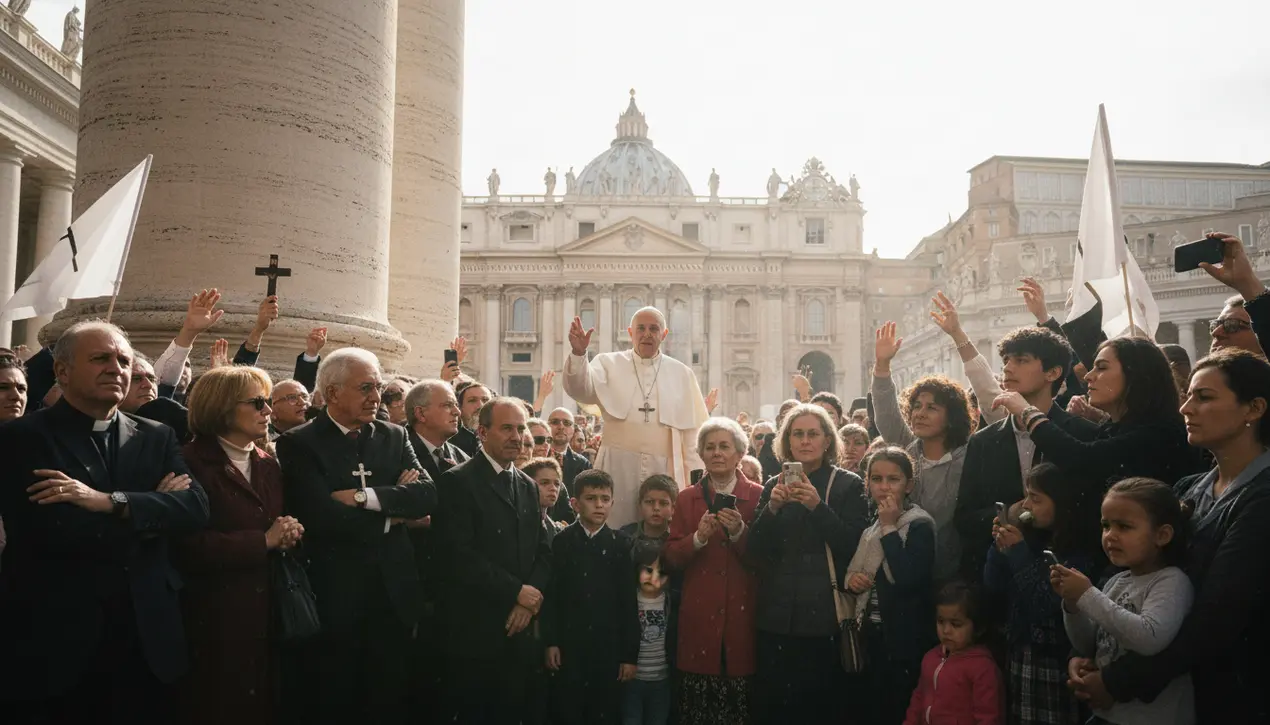
Politicshuman rightsRefugees and Migration
An American Pope in Rome: Why Leo XIV's Papacy Defies U.S. Political Labels
RO
Robert Hayes
23 hours ago7 min read1 comments
The election of Pope Leo XIV, the first American pontiff in the two-millennia history of the Catholic Church, has created a complex theological and political reality that resists simple partisan framing. A native of Chicago, the new Pope brings a Midwestern directness and an unprecedented comfort with the press, shattering centuries of Vatican tradition.His weekly, informal Q&A sessions have established a new channel for papal teaching, delivered not through the careful filter of translation but in the clear, accessible English of a native speaker. This linguistic immediacy has amplified his messages on everything from immigration to artificial intelligence, allowing them to resonate through American media with a force unseen during previous papacies.Where Pope Francis's comments were often softened by the distance of interpretation, Leo's words land with their full theological weight, presenting a particular challenge for American conservatives who can no longer dismiss papal critiques as misunderstandings of a foreign prelate. The central tension emerges from the apparent friction between Pope Leo’s public statements and the political agenda of the MAGA movement.When the Pope questioned whether one can be 'pro-life' while supporting the 'inhumane treatment of immigrants,' and later endorsed a U. S.Conference of Catholic Bishops statement condemning 'indiscriminate mass deportation,' many observers interpreted it as a direct challenge to Trump-era policies. However, to view this solely through a political lens is to miss the deep roots of Catholic social teaching.The Church’s stance on immigration is not a modern progressive invention; it stretches back to Pope Pius XII’s writings during the World War II refugee crisis, grounded in the foundational principle of the inherent dignity of every human person. This is consistent magisterial teaching that places the Church in perpetual tension with any political system that seeks to dehumanize migrants.The current dynamic is less about Pope Leo being 'anti-MAGA' in a partisan sense and more about how certain political approaches fall demonstrably short of the ethical framework for society that every pope for over a century has articulated. For conservative American bishops who had hoped the conclave would elect a pope to reverse the direction of Francis, Leo XIV represents a profound disappointment—a candidate of continuity, not change.They now face a long papacy from a man who not only understands American culture intimately but is also a relatively young 70-year-old, ensuring his influence will shape the Church for decades. Their previous strategy of waiting out a papacy is no longer viable.Beyond domestic politics, Pope Leo has turned his attention to the technological frontier, particularly artificial intelligence. In choosing his name, he explicitly invoked Pope Leo XIII, who guided the Church through the Industrial Revolution with his landmark 1891 encyclical *Rerum Novarum*.Similarly, Leo XIV sees the AI revolution as a defining challenge of his pontificate. His concern is twofold: the potential for misuse of the technology, and, more profoundly, how it might reshape humanity's self-understanding.His focus on 'below-the-line' workers in Hollywood threatened by AI demonstrates a direct application of Catholic social teaching—echoing *Rerum Novarum*'s defense of workers' rights—to the emerging digital economy. He is not an outright Luddite; he recognizes AI as a tool that, like nuclear power, can be used for good or ill.But he insists that the Church must ask the fundamental anthropological questions about what these technologies do to the human person. Ultimately, the phenomenon of an American pope is not that he is saying radically new things, but that he is articulating ancient teachings in a new way—a way that is immediately, and uncomfortably, understood by the American public and its political leaders. The real story is not a political feud, but the collision of a two-thousand-year-old moral tradition with the polarized forces of contemporary American life, mediated by a pontiff who speaks the language of both.
#Pope Leo XIV
#American Pope
#Catholic Church
#Immigration
#AI
#Catholic Social Teaching
#US Politics
#featured
Stay Informed. Act Smarter.
Get weekly highlights, major headlines, and expert insights — then put your knowledge to work in our live prediction markets.
Related News
Comments
Loading comments...
© 2025 Outpoll Service LTD. All rights reserved.